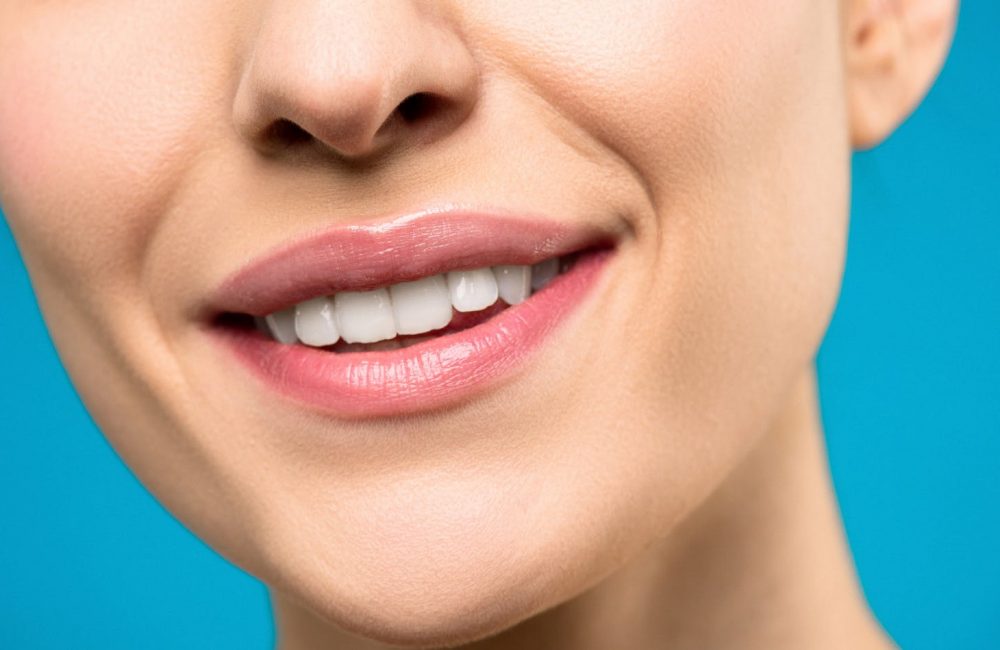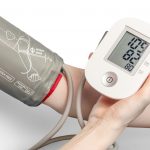Chapped lips, also known as dry or cracked lips, are a common issue, especially during colder months or in dry environments. Unlike other skin on the body, the lips don’t have oil glands to keep them hydrated, which makes them prone to drying out. Symptoms of chapped lips include dryness, flakiness, soreness, and sometimes bleeding. Fortunately, with a few mindful practices and remedies, you can prevent and cure chapped lips, restoring softness and hydration. Here are 10 effective tips to help you protect and care for your lips, ensuring they stay smooth and healthy year-round.
1. Keep Hydrated from the Inside Out
One of the most fundamental steps in preventing and curing chapped lips is staying hydrated. When the body lacks sufficient water, it pulls moisture from tissues, including the lips, leading to dryness. Dehydration also reduces blood flow to the lips, making them more prone to cracking. Drinking enough water daily not only supports overall health but also keeps your lips naturally hydrated.
Aim to drink at least 8 cups (64 ounces) of water daily, increasing the amount if you live in a dry climate or lead an active lifestyle. You can also include hydrating foods like cucumbers, oranges, and watermelon in your diet to boost water intake. Maintaining proper hydration is crucial, as it helps prevent the lips from drying out from within, making external lip care more effective.
2. Avoid Licking Your Lips
When lips feel dry, it’s tempting to lick them for quick moisture, but this habit can worsen chapped lips. Saliva evaporates quickly, leaving the lips drier than before. Additionally, saliva contains enzymes that can irritate and damage the sensitive skin on the lips, leading to cracks and soreness. Frequent licking also disrupts the skin’s natural moisture barrier, making it harder for the lips to retain moisture.
If you find yourself licking your lips frequently, try to keep a lip balm on hand as a substitute. Applying a hydrating lip balm can help soothe the urge to lick your lips and create a protective barrier. Over time, this habit change can significantly improve lip health, preventing further chapping and irritation.
3. Choose a Quality Lip Balm
A good lip balm is essential in both preventing and treating chapped lips. Lip balms work by creating a protective layer that locks in moisture and shields the lips from environmental factors like wind, cold weather, and sun exposure. When choosing a lip balm, look for ingredients that moisturize and nourish the lips, such as beeswax, shea butter, coconut oil, or lanolin. Avoid balms with harsh chemicals, alcohol, or artificial fragrances, as these can exacerbate dryness.
Additionally, opt for a lip balm with SPF protection to guard against sun damage, as UV rays can further dry and damage the delicate skin on the lips. For severely chapped lips, medicated balms containing healing ingredients like aloe vera or honey can provide extra relief. Apply lip balm throughout the day, especially after eating, drinking, or spending time outdoors, to keep your lips consistently protected.
4. Exfoliate Your Lips Gently
Exfoliating the lips can help remove dead skin cells that contribute to flakiness and dryness. However, because lip skin is sensitive, it’s crucial to exfoliate gently to avoid irritation. Lip scrubs, often made from sugar and oil, are an effective way to buff away dead skin and leave your lips feeling smooth. You can make a simple scrub at home by mixing sugar with a small amount of honey or coconut oil, which adds extra hydration.
Use the scrub 1-2 times per week by applying it to your lips and gently rubbing in circular motions. Rinse with lukewarm water and follow up with a nourishing lip balm to seal in moisture. Regular exfoliation not only enhances lip smoothness but also allows lip balm to penetrate deeper, making it more effective in treating and preventing chapped lips.
5. Protect Your Lips from Harsh Weather
Weather conditions play a significant role in the health of your lips. Cold air, wind, and dry indoor heating can strip the lips of their natural moisture, making them more susceptible to cracking. To protect your lips, apply a thick layer of lip balm before heading outside, especially in winter. The balm creates a barrier that locks in moisture and protects against the elements.
In particularly harsh weather, consider covering your mouth with a scarf to prevent exposure to cold air. During summer, use a lip balm with SPF to protect against sunburn, which can worsen chapping. By consistently shielding your lips from extreme weather, you can reduce the likelihood of dryness and irritation, keeping your lips soft and healthy in all seasons.
6. Use a Humidifier Indoors
Indoor heating during colder months or air conditioning in summer can create a dry indoor environment, which affects both skin and lips. Using a humidifier helps maintain adequate humidity levels, preventing moisture loss from the skin and lips. A humidifier adds moisture to the air, helping to prevent your lips from drying out and cracking due to environmental factors.
Keep a humidifier in your bedroom or workspace, especially if you spend a lot of time indoors. Ideally, indoor humidity levels should be between 30-50% to support skin hydration. A humidifier is particularly beneficial during winter when indoor heating dries out the air. By creating a more balanced indoor environment, you can protect your lips and keep them hydrated naturally.
7. Avoid Irritating Ingredients in Lip Products
Some lip products contain ingredients that, while common, can actually cause irritation and dryness. Ingredients like menthol, camphor, and eucalyptus oil, often found in lip balms, may provide a cooling sensation but can be irritating for sensitive lips. Additionally, flavored and scented lip balms may contain artificial additives that can lead to allergies or exacerbate dryness.
When selecting a lip balm or lipstick, look for products labeled as hypoallergenic or fragrance-free if you have sensitive lips. Opt for formulas that are enriched with nourishing ingredients like aloe vera, jojoba oil, or ceramides, which help soothe and moisturize. Avoid products that include alcohol, as it is a drying agent that can make chapped lips worse. By choosing gentle, hydrating lip products, you can reduce the risk of irritation and support long-term lip health.
8. Apply Natural Oils for Extra Moisture
For those with severely dry lips, natural oils can provide a deep level of moisture and help repair cracked skin. Oils like coconut oil, olive oil, and almond oil are rich in fatty acids that penetrate the skin and restore hydration. These oils are gentle enough for sensitive skin and offer lasting moisture that keeps lips soft and supple throughout the day.
To use, simply dab a small amount of oil onto your lips and massage it in gently. You can apply oil before bed as an overnight treatment, allowing the skin to absorb moisture while you sleep. Natural oils are an excellent option for those who prefer chemical-free lip care, as they contain no additives or artificial ingredients. Regular application can make a significant difference for those struggling with chapped lips, providing relief and protection.
9. Eat a Nutrient-Rich Diet
A balanced, nutrient-rich diet plays an essential role in skin health, including the lips. Nutrients like vitamin E, vitamin C, and omega-3 fatty acids support skin hydration and elasticity, helping to keep lips smooth and resilient. Vitamin E, found in nuts and seeds, acts as an antioxidant that protects the skin from environmental damage. Vitamin C, abundant in citrus fruits and leafy greens, is essential for collagen production, which keeps the skin on your lips firm and healthy.
Omega-3 fatty acids, found in fatty fish, chia seeds, and walnuts, help lock in moisture and reduce inflammation, which can prevent chapped lips. Additionally, maintaining a diet rich in fruits, vegetables, and whole grains ensures that your body receives the necessary nutrients to support skin repair and hydration. A healthy diet combined with good lip care practices can enhance your lips’ natural moisture and prevent dryness from the inside out.
10. Practice Good Lip Care Habits Consistently
The most effective way to prevent and treat chapped lips is by practicing consistent lip care. Develop a routine that includes daily lip balm application, regular exfoliation, and hydration. Avoid biting or picking at dry skin on the lips, as this can lead to irritation, bleeding, and delayed healing. Instead, rely on lip balms and oils to soften dry areas, allowing dead skin to shed naturally.
Consistency is key to maintaining healthy lips. By making lip care a regular part of your skincare routine, you can protect your lips from external damage and provide the hydration they need. Good lip care habits will not only keep your lips soft and smooth but also prevent the recurrence of dryness and discomfort.
Chapped lips can be uncomfortable and frustrating, but with the right approach, they’re easily preventable and treatable. Staying hydrated, choosing the right lip products, and protecting your lips from environmental stressors are essential steps for maintaining healthy, soft lips. By following these 10 tips and practicing mindful lip care, you can ensure your lips remain nourished, hydrated, and free from dryness, regardless of the season. With consistent care and a few lifestyle adjustments, chapped lips can be a thing of the past.






